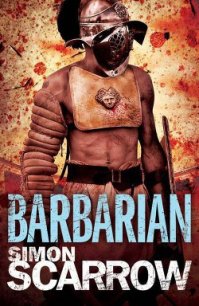Young bloods - Scarrow Simon (библиотека электронных книг txt) 📗
A few of his cronies laughed and smiled. Napoleon glared at Carteaux as the general turned back to the representatives, emboldened by the support of his officers. 'Give me back control of my guns and I will give you victory.'
Saliceti shook his head. 'No. The key to this siege lies in depriving the Royal Navy of access to the port. I believe Major Buona Parte's strategy is sound.We must concentrate the artillery around L'Eguillette. We must take Fort Mulgrave and then we will control the harbour entrance.The alternative – your alternative – is to take the forts surrounding Toulon one by one and then attack the city walls. Now forgive me, General, but that sounds like it will cost many lives and take much longer.'
'A soldier must make hard decisions from time to time.' Carteaux shrugged. 'Perhaps a politician might find that difficult to understand.'
'Of course. But hard decisions are not necessarily the right decisions, General. Look at that assault on Mount Faron at the start of the month. How many men did we lose in that attack? And what did we gain? Nothing. And supposing you had succeeded, what then? The next two forts you would have to take, Malbousquet and LaMalgue, are much stronger. How many hundreds, or thousands of our men would be killed in such attacks?' Saliceti shook his head. 'We must concentrate our efforts on L'Eguillette.'
Carteaux's eyes bored into Saliceti for a moment and Napoleon watched as the general's jaw worked furiously beneath his thick moustache.Then he snorted with derision and gestured towards his artillery commander. 'God knows what you've been telling them behind my back, Buona Parte, but you're wrong.'
Napoleon felt his spine go cold with anxiety and fear. He had no intention of being caught between his army commander and the representatives of the Committee for Public Safety. 'Sir, I've not been disloyal. I've said nothing to prejudice them against you. I merely offered a tactical opinion. It is my judgement that we must take L'Eguillette, and I stand by that.'
'Your judgement…' Carteaux smiled mirthlessly. 'If you do have a plan for taking Toulon, I'm sure we'd all be delighted if you shared it with us.'
'I already have, sir. I sent it to your headquarters at the end of September.'
Carteaux pursed his lips for a moment before he responded. 'Be so good as to refresh my memory.'
'Very well, sir.' Napoleon glanced towards Saliceti and Freron. 'With your permission?'
Freron waved his hand impatiently. 'Carry on, Buona Parte.'
Easing himself up from his chair Napoleon stood beside the map and gestured at the large peninsula jutting out towards the port of Toulon. 'If we can establish a battery of twenty-four-pounders at the end of L'Eguillette they will cover the entire width of the channel. Better still, one of my officers has located a forty-four-pounder culverin, which should reach us by the end of the week. With that we can begin bombarding the shipping moored in the port itself.'
'And what use is this to us?' asked Carteaux.
'We have Toulon surrounded. Their only lifeline is the sea. At the moment, the sight of a fleet of Royal Navy warships in the harbour is what gives hope to the people in Toulon. The enemy can bring in more men and supplies at their whim. If we force the fleet out of the inner harbour then I believe their morale will collapse. General, you will be able to walk into the city without a shot being fired.' Napoleon paused to let his commander visualise the triumphant scene, and then he continued outlining his plan. 'But first we must take Fort Mulgrave. I'd like permission to construct some more batteries near to the fort.'
'How near?'
'Within close cannon shot. No further than three hundred yards from the rampart.'
There was a sharp intake of breath amongst several of the officers around the table and then muttering and shaking of heads.
'That would be suicide,' Carteaux responded. 'And you accuse me of wasting lives.'
'It's dangerous work,' Napoleon admitted. 'But that's what soldiers get paid for. If we work mostly at night we should minimise the risk.'
'It's easy for you to ask other men to risk their lives, Major. I'm not sure the men will see it that way, especially given the number of volunteers we have in the army.'
'I will not ask my men to do anything I wouldn't do myself,' Napoleon said evenly. 'I will work alongside them on the batteries, and I will direct the fire on the fort myself.'
Carteaux smiled. 'I'll believe it when I see it, Major.'
'Then may I invite you and your staff officers to inspect the first of our batteries the moment it is complete?' Napoleon replied courteously. 'You should be safe enough, sir.'
General Carteaux glared back at him, his skin flushing under the amused gaze of the representatives. He had fallen neatly into the trap and he was furious. Then a calculating expression crept on to his face. 'Thank you, Major Buona Parte. I accept your invitation. And I imagine that Citizens Saliceti and Freron will be equally keen to inspect the handiwork of their young protege at first hand.'
At the head of the table the representatives exchanged surprised and nervous glances.Then Saliceti cleared his throat and nodded at the general. 'Of course. It might do the men good to see us share their peril. We will join you at the new battery.' He turned to Napoleon.'And what will you be calling this one? Have you thought of a name?'
Napoleon thought a moment and then smiled. 'Yes, sir. The Battery of Men-Without-Fear.'
Over the next week Napoleon and his men worked furiously to construct the first battery from which their guns would attempt to bombard the ramparts of the British fort. When Napoleon addressed his men to explain the task before them he made no attempt to conceal the danger of the work. Instead he exaggerated it, and then at the end he stared at them with an excited twinkle in his eyes.
'This is a job for real men. Men with balls. That's why I'm asking you, not that rabble up the hill that calls itself infantry, and certainly not those self-regarding primadonnas of the cavalry. If you want a good job done, you come to the best and ask them. So, then, any takers?'
There were so many volunteers for the work that Napoleon picked three shifts of the best men and promised the rest there would be vacancies as soon as the enemy provided them.The first night, Napoleon and Junot, whom Napoleon had promoted to lieutenant, crept out into the open ground in front of the ramparts to mark out the site of the battery with wooden pegs and lengths of rope. As soon as that was done Napoleon returned with a small team of pioneers and quickly dug a ditch and threw up a crude breastwork to provide some shelter for the following night's work. Junot remained with fifty armed men to guard the site from any British counterattacks. As the autumn sun rose into a bleak grey sky the artillerymen could see faces staring at them from the embrasures on the fort. Soon afterwards there was a puff of smoke, a bright flash and then the dull thud of cannon-fire shortly before a ball grazed the earth in front of the breastwork, passed overhead with a low whirr and bedded itself in a grassy bank beyond. The fire continued at intervals through the day, doing little damage as Junot and his men crouched down behind the shelter of the breastwork. Then as light faded, Napoleon brought up the pioneers.The ditch was deepened, the breastwork raised into a rampart and reinforced with wicker gambions tightly packed with soil.The enemy continued to fire occasional blasts of grapeshot into the darkness, but there were no casualties as the men threw themselves flat as soon as they saw the glare of a muzzle flash from the direction of the fort.
When the earthworks were completed, mule teams dragged timbers down for the artillery platform while the pioneers turned their efforts to digging the zigzag of a communication trench leading back to the French lines. Now, Napoleon and his men could safely continue their labours in broad daylight.




